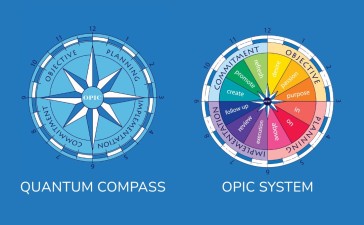Image via Pixabay
These days, you hear all about the various ways in which modern companies have changed up the traditional business model, and have made things more “relaxed,” and laissez-faire.
For example, everyone’s heard of the ball pits at Google, and more and more companies now encourage their workers to essentially set their own hours, and work at open plan desks that facilitate socialisation and communication during the day.
These things seem positive on the surface. But according to professor and author Cal Newport, these innovations may actually rob you of your ability to be effective in your career, in the digital age.
His suggestion is that you become comfortable with embracing boredom, and reducing distraction.
Here are a few reasons why he may be onto something, and why your business may rely on your ability to embrace boredom and do “deep work.”
Distracted, “shallow” work will mean you get superseded by machines
One of the central claims of Newport’s highly acclaimed book “Deep Work,” is that the rapid growth of automated technologies, AI systems, and effective digital tools, means that the market will increasingly only reward those who are able to do “deep work,” while punishing those who do shallow work.
According to Newport, the impact of automation on the business world means that machines are increasingly capable of handling any task that a skilled worker can do, that isn’t particularly skilled, and that can be “multitasked.”
What the machines can’t do, however, is the kind of deep, focused work, that involves you leveraging as much of your skill set as possible, and engaging with the subject thoroughly and comprehensively.
He has a point. Much like automation has made many production line workers redundant, so too, in the knowledge industry, is digital technology increasingly making “busy work” tenuous at best.
Already, some major news corporations are using AI to produce short articles on current events.
What new technologies can’t do, however, is to write deep, narrative, and well-researched books, for example.
Many forms of entertainment are fundamentally predatory, and will rob you of your time, wellbeing and ability to be productive
Adam Alter is an academic and author who wrote the book “irresistible”, which looks at the ways in which many of the ubiquitous entertainment and communication mediums in today’s world are fundamentally predatory.
Alter notes, that many major companies such as Facebook and YouTube have specifically hired psychological experts to create the most “addictive” systems possible.
One thing this means is that when you fall into a cycle of distraction throughout the working day, your attention can easily be robbed, and you can lose much of your time and productivity. This, in turn, may in fact ruin your ability to do meaningful work and to progress in your career.
Deep work is a skill – and requires serious training that reshapes the structures of your brain
In the last couple of decades, discoveries on the topic of “neuroplasticity” have found that any habits we engage in fundamentally reshape the structures of our brain so as to facilitate and encourage those habits to be continued.
This means that deep work – focus and diligence – are skills that require serious training, and consequently reshape the structures of your brain.
Therefore, the more you “practice boredom,” and hone your ability to focus, the more you literally restructure your brain to make you a more effective “deep worker.”
By the same token, allowing yourself to be ruled by distraction and procrastination causes you to fall into a vicious cycle, and rewire your brain to make you less effective going forward.





